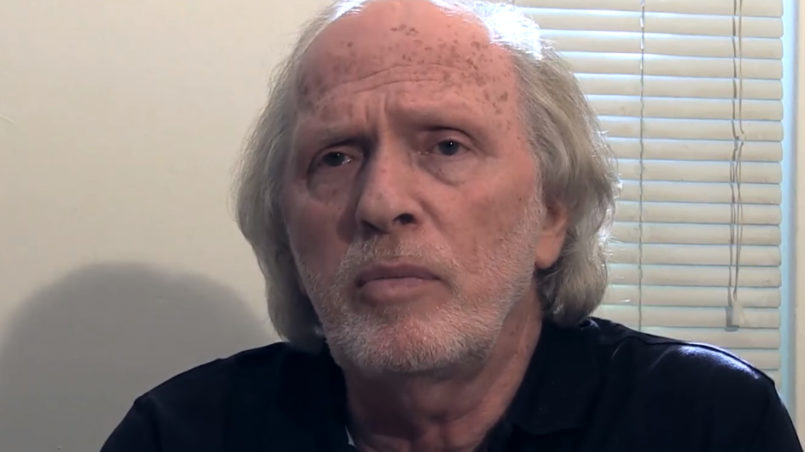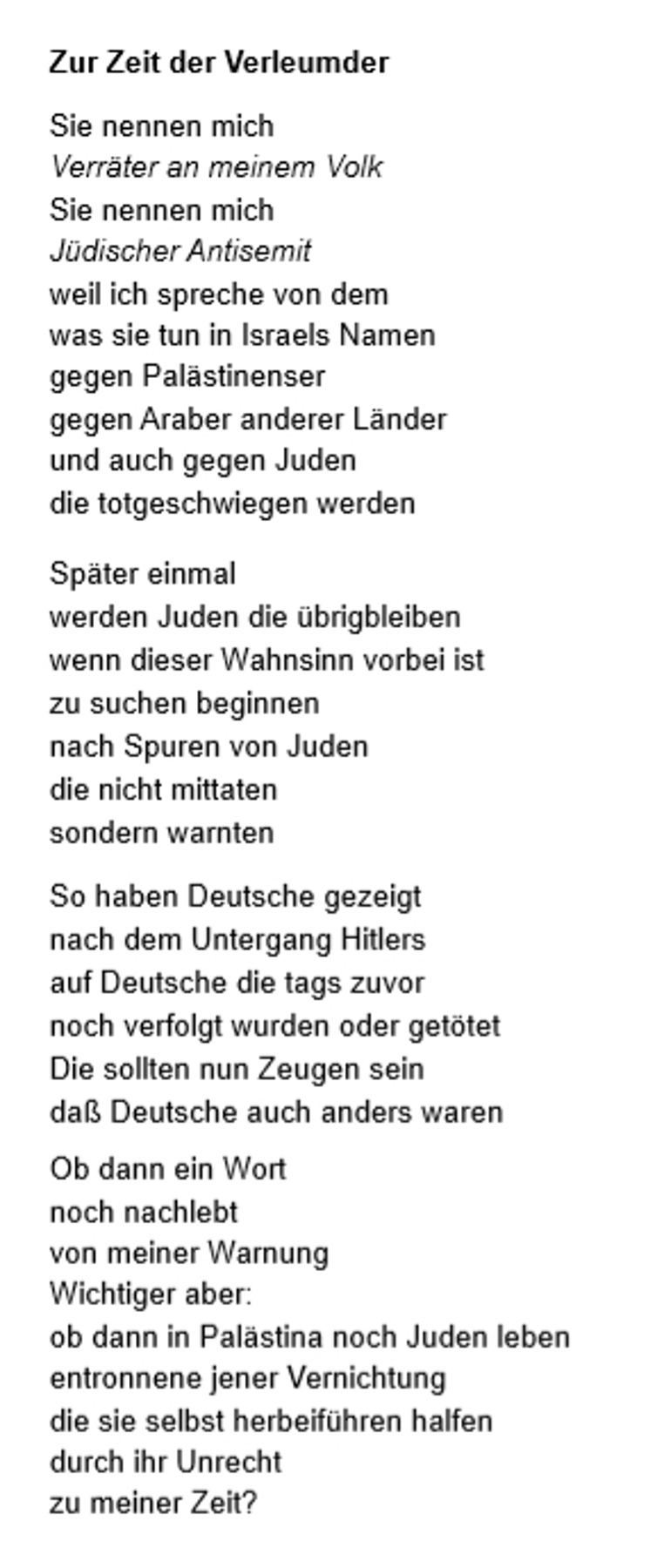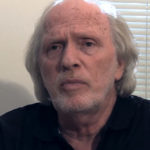No Idea of Israel’s Reality – Interview with Moshe Zuckermann

In the German capital, Berlin, a conference entitled “At the time of the slanderers” will take place on February 10, 2018. One of the speakers is the Israeli sociologist and author, Dr. Moshe Zuckermann, Professor of History and Sociology at the University of Tel Aviv and scientific director of the Sigmund Freud University in Vienna. For Idealism Prevails, Stephan Bartunek conducted an interview with Zuckermann on the forthcoming conference in Berlin and the political discourse on the topic of “anti-Semitism”.
Stephan Bartunek: Dr. Zuckermann, you will be speaking at a conference in Berlin on February 10th, which is named after a poem by Erich Fried:”At the time of the slanderers”. Fried wrote this poem in the 1980s, summarizing, with his typical and beautiful melancholy, how he is called a “Jewish anti-Semite” because he opposes the oppression of the Palestinians by the Israeli state and its military. In Fried’s time, an open debate on the Israeli military apparatus was still possible.
You experienced the 1980s back then and are now also present in public discourse as an intellectual. From your point of view, can you state and explain what has changed so radically, especially within the political left and here in particular in German-speaking countries?
Moshe Zuckermann: In this respect, some things have indeed changed since the 1980s. The reasons for this may be different, but one central point seems to me to be that, with the collapse of Soviet communism on the western left, a central coordinate of attitudes was lost: socialism was no longer en vogue; the concept of society in the social sciences gradually broke away and was replaced by “culture”, system and structural analyses made room for identity-related discourses and resentful identity politics. In Germany and mutatis also in Austria, this left lacuna created a special phenomenon: out of the awareness that the unification of the two German states could not be tolerated, a leftist “anti-German” movement was formed. The original “Never again Germany” sought a new hold that was found in “the Jew”:
Because Germans had committed monstrous crimes against Jews, solidarity with “Jews” became a new “leftist” identity. And because Jews had consolidated nationally in Israel after 1945, Israel and its nation-state ideology of Zionism became the matrix of the self-image of the former socialist, even communist left. Positively, Jews, Zionism, and Israel were thus treated as equal or perceived as equivalent. Turned negatively, it meant equating anti-Semitism, anti-Zionism, and criticism of Israel. And because it was necessary for enlightened Germans after 1945 to combat anti-Semitism wherever they were, the fight against anti-Semitism was fetishised as the cornerstone of their own self-image and this reification (which soon enough had nothing more to do with Jews and anti-Semitism) was projected onto the discourse on Zionism and the Middle East conflict.
However, the further away from the original intention, the accusation of anti-Semitism became independent and an ideological slogan. Those who nowadays insult Jews as anti-Semites or “Jews who hate themselves” have no idea of Israel’s reality and do not care about Jews.
Bartunek: The current defamation of Israeli intellectuals, but also of activists and journalists from the German-speaking and international world, involves people who consider themselves to be part of the political spectrum from left to right and conservative to liberal. They are united in their canon, namely in the glorification of the Western community of values and in the complete negation and reinterpretation of historical facts and events. Israel, as Prime Minister Benjamin Netanyahu is never tired of emphasising, likes to glorify Israel as the spearhead of this community. Is this a kind of “cross-front”, or would you describe this group of interests as overlapping? And how do you explain this common fanaticism?
Zuckermann: The common denominator of these overlapping camps is rampant Islamophobia and virulent xenophobia. Since Jews are now taboo, at least in Germany, even for right-wingers and right-wing radicals, a practical replacement for them has been found: all camps show a certain amount of resentment against Islam and its fundamentalist excesses; everyone knows that they are in good company when they are fighting against refugees or immigrants. The “transverse front”, if it is one, is not directed against an authentic leftist conviction, but is merely the original anti-Semitic resentment (also among the Israeli “leftists”), which has now found a new, more legitimate and consensually sanctioned object. With every Islamic terrorist attack, one sees oneself confirmed in one’s ideology, without taking account of the fact that the resentment feeds from the same source that made anti-Semitism acceptable at other times.
Bartunek: In recent years, Zionism itself has also been increasingly included in the public debate and, according to the prevailing zeitgeist, it is perceived as either good or bad. In Europe, Zionism is equated with Judaism in the public perception of Zionism; it is completely ignored that especially religious people, who are more likely to belong to Christianity, also stand up for revisionist Zionism. On the contrary, Emanuel Macron was enraptured by the statement that anti-Zionism was anti-Semitism, and Austria’s Federal Chancellor, Sebastian Kurz, in his inaugural speech, did not allow himself to equate criticism of the Israeli state and occupation with anti-Semitism. An exciting newspeak has recently been established here, namely “imported anti-Semitism” or “Muslim anti-Semitism”, and these are lined up without much attention with the relatively new “left-wing anti-Semitism”. Can anti-Semitism have such a broad spectrum at all, or is this newspeak simply the cheapest instrumentalisation?
Zuckermann: The anti-Semitism qua “anti-Semitism” is and has always been versatile. In the 19th and 20th centuries, the anti-Semite was able to turn against Jewish capitalists and equally against Jewish socialists. He was able to get philosophical; the evangelists in the USA would be an example of this. At the beginning of their movement, the Nazis saw Zionism as a possible solution to make Germany “Jewish clean”. It could be instrumentalized by Zionism; after all, Zionism never wanted to eradicate anti-Semitism; on the contrary, it wanted to keep it alive as a drive for the emigration of Jews in the world to Israel. Dozens of facets of the instrumentalisation of the accusation of anti-Semitism could still be shown. The remarkable thing about this phenomenon is that the instrumentalisation of the accusation of anti-Semitism has little to do with anti-Semitism per se or with its alleged fight against it, but simply with heteronomous interests. The evangelicals in the USA, for example, are not concerned with the Jews as such, but with the gathering of all the Jews in Zion, so that they may perish as Jews in the apocalyptic final struggle and emerge as Christians from this end-time event. One must always consider the purpose of the accusation of anti-Semitism or the alleged love of Jews.
Bartunek: The FPÖ chairman and Austrian Vice-Chancellor, Heinz-Christian Strache, does not tire of proclaiming his esteem for Zionism again and again. In June 2017, before the National Council elections in Austria, Heinz-Christian Strache wrote a letter to Benjamin Netanyahu in which he advocated the recognition of Jerusalem as the Israeli capital. Large parts of the political right, from the United States to Europe, and unfortunately also parts of the political and intellectual left, support this step either openly or through shameful silence. Why are these groups so concerned about another religious escalation?
Zuckermann: I have already said it: because they are in no way concerned with Jews and Israel, nor with the fate of the Palestinians. Any politically rational person can see that such a step could have serious consequences due to violence. A grudge can benefit ideologically from having supported Jews = Zionism = Israel and thus reject the accusation of being a right-wing radical politician who tends to be anti-Semitic. Trump can use it to serve his evangelical constituency – as you pointed out above. “Leftists” can give performative expression to their anti-Palestinian resentment or “pro-Zionist” solidarity with “Jews”. What they all have in common is that they are of little real interest to Israel, Palestine, Jews, and Muslims. That’s the perfidious thing.
Bartunek: The new Austrian Foreign Minister, Karin Kneissl, who was interestingly appointed by the FPÖ, wrote in her book, “My Middle East”, that Zionism was a “blood and soil ideology” that had developed from the German nationalism of the 19th century. What do you think of this statement?
Zuckermann: The statement sounds provocative and I frankly do not know what Karin Kneissl’s intention is. But objectively speaking, it can be said that at least Central European Zionism in the German-speaking world has taken over much of the categories of people, nation, and also race, and has thus adopted and oriented itself to them from the ideology of the people, including race, which seems to be organizationist. Whether you have to talk about “blood and soil”, a Nazi ideology, after all, I dare to doubt. The category of blood has a different basis in Judaism, and thus also in Zionism, than in modern racial ideologies, namely religious. I would, therefore, be cautious with such slogan-like sweeping judgments.
Bartunek: As I have come to know and appreciate you, I would describe you, among other things, as a liberal Zionist. How does an adequate critique of Zionism work for you, where does it end and where does anti-Semitism actually begin?
Zuckermann: You are mistaken, Mr. Bartunek, I am a Marxist and therefore not a “liberal”. And when I was still a Zionist – and I was once – I was a socialist Zionist. This has nothing to do with today’s Israel, of course. The socialist part of Zionism has long since ceased to exist. And you should not fall into the trap we have discussed here: criticism of Zionism and Israel’s politics has nothing to do with anti-Semitism in essence. There are Jews critical of Zionism, and there are Zionists critical of Israel. If anti-Semites make use of the anti-Zionist argument, they must be disavowed and attacked as such, namely as anti-Semites.
Bartunek: At best, it seems that we are facing exciting, if not dangerous times. However, the prevailing or coming conditions have not fallen from the sky, they have been created and can also be removed again. Apart from the conference in Berlin, what does it take to turn history into another story?
Zuckermann: Oh, Mr. Bartunek, your question is so weighty – philosophically, sociologically, economically and culturally weighty – that it would take a whole book to even begin to discuss and answer it.
Bartunek: Thank you for the interview and all the best!




